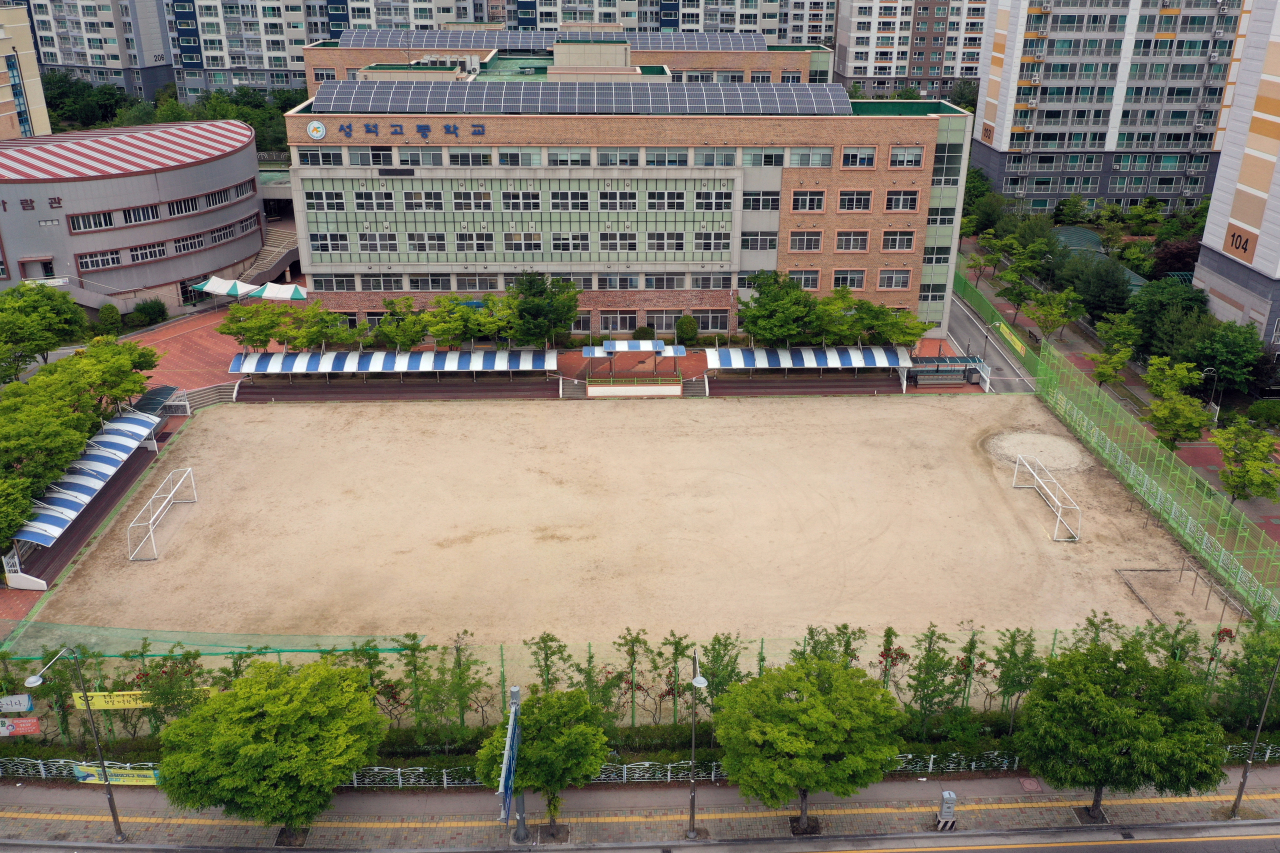 |
No students are seen in high school playground in Gwangju on Tuesday amid extended online classes due to COVID-19 outbreak. (Yonhap) |
Teachers are worried about the effects the prolonged COVID-19 pandemic has on their students, a survey showed, as class disruptions continue to take a toll on educators’ well-being.
With the 40th Teacher’s Day coming up on Saturday, the Korean Federation of Teachers’ Associations conducted a survey on 7,991 teachers at kindergartens, elementary, middle and high schools and universities across the country from April 26 to May 5.
Asked about the worst problem that public education faces in times of the coronavirus, 35.1 percent of the respondents said it was the “lack of face-to-face interaction between students and their peers, reduced social skills and lowered community awareness.”
Some 27 percent chose “a loss of learning opportunities for those more vulnerable and a widening education gap,” while 21.6 percent picked students’ declining academic performance and increased number of students without basic education.
“Since students come to class every other week, there is an awkward atmosphere in the classroom,” Heo Yoon-je, a high school teacher in Seoul, told The Korea Herald. “Students usually become friends at the beginning of the semester. This puts the classroom atmosphere at ease and allows smoother interaction between the teacher and students.”
The high school teacher explained that many students now tend to ask questions privately after class because they feel uncomfortable speaking up in front of their classmates.
The pandemic has affected not only students but also teachers, according to the survey. At least 85 percent of the respondents said they have dealt with more stress and difficulties than they did before the virus outbreak.
The teachers chose running remote classes and trying to reduce the education gap as the biggest adversities, followed by implementing quarantine measures at school and having more workload related to taking anti-virus precautions.
“Half of teachers are concerned about the education gap and reduced academic ability after the coronavirus,” said Ha Yun-su, president of the Korean Federation of Teachers’ Associations.
“In order to move toward post-virus education such as protecting students’ health and offering customized education, we cannot solely rely on teachers by imposing unlimited responsibility on them,” he said. “The government should expand the number of full-time teachers to cut down the number of students per class and reduce the amount of administrative work for teachers so they can put all their efforts into education.”
On evaluating the government’s education policies in response to the pandemic, such as launching remote classes and providing quarantine support, 43.2 percent said there was a lack of response from authorities, while 32 percent said the government handled the pandemic well.
By Kan Hyeong-woo (
hwkan@heraldcorp.com)








